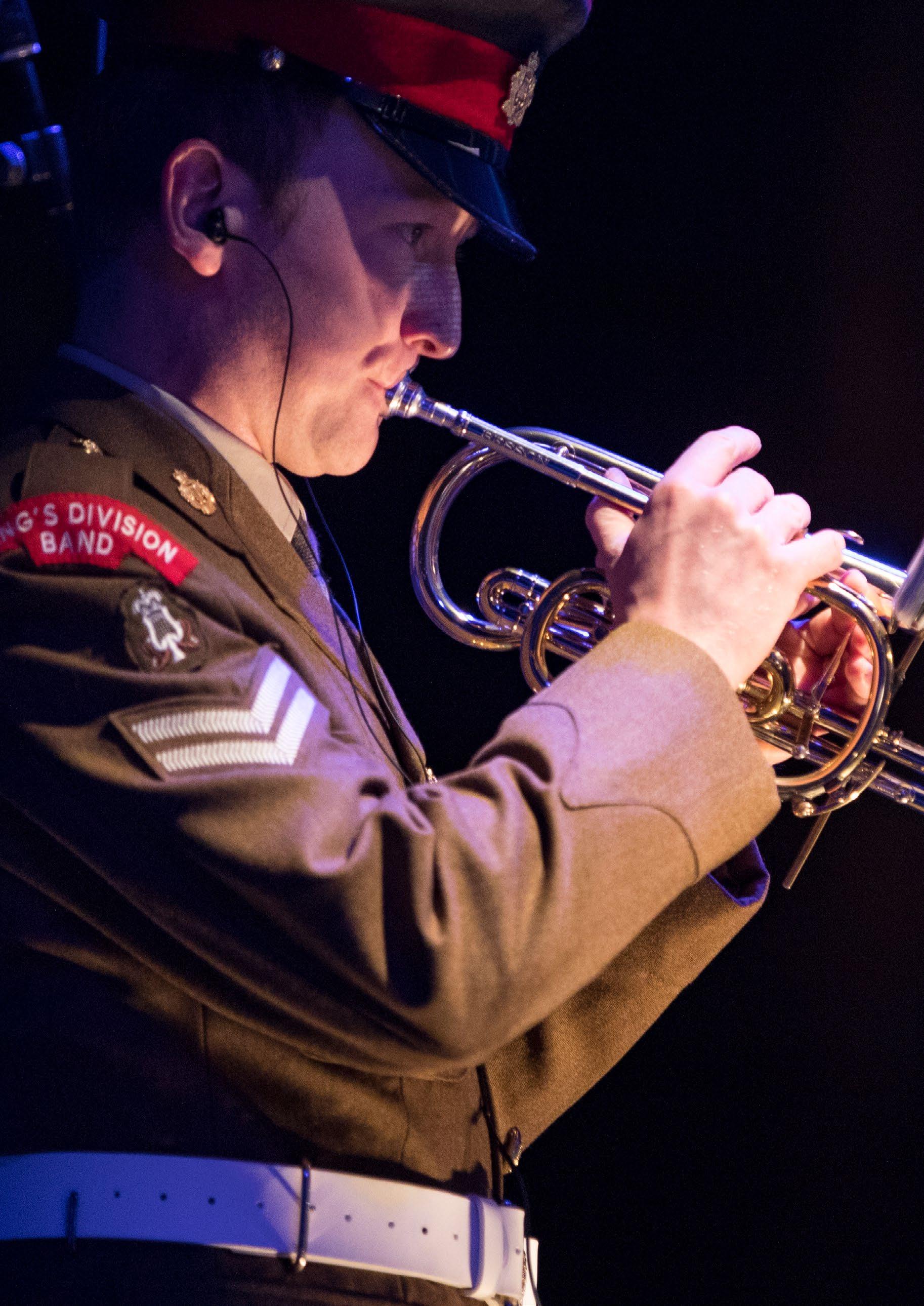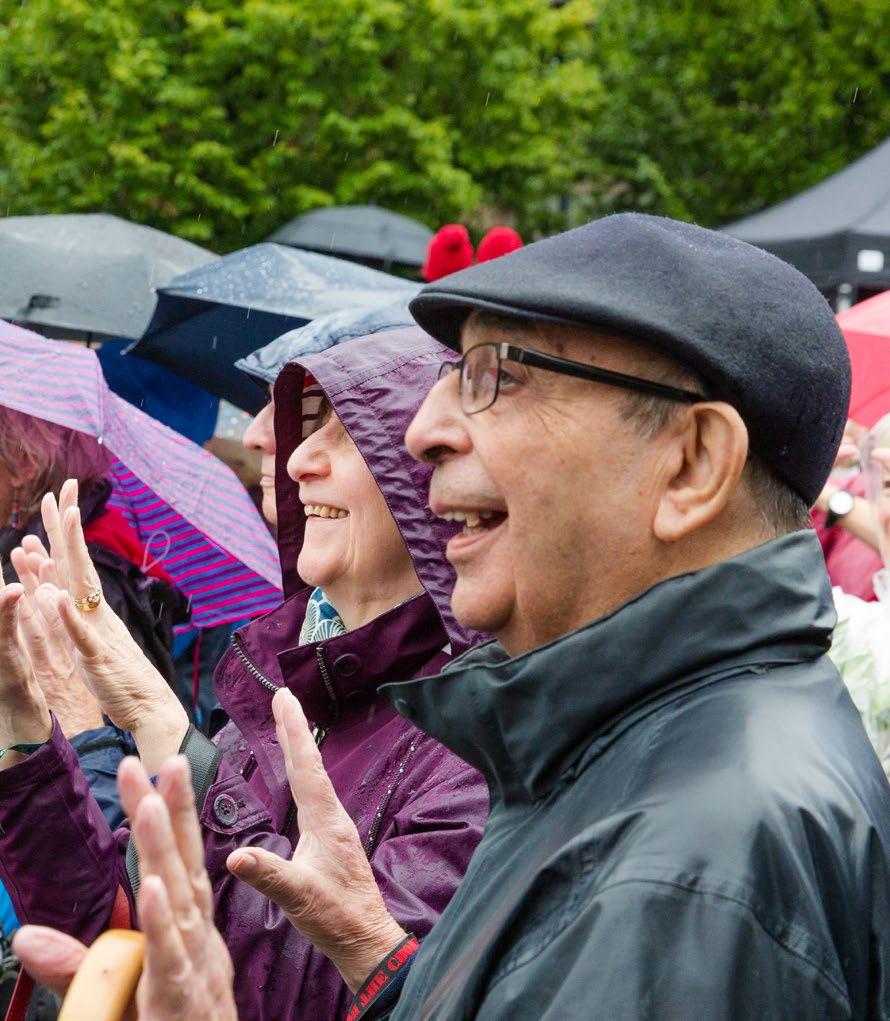
8 minute read
4.4 Aim Four: Creating a sustainable and fair future for everyone
Manchester Histories will create opportunities to learn from the past and create a better future to benefit our local and global communities, including:
• Reducing Manchester Histories’ environmental footprint. • Sharing histories and heritage to challenge social, economic and environmental injustices.
Areas of work
Histories, Stories, Voices in Public Spaces
Manchester Histories are supporting Manchester City Council to conduct a consultation on Manchester’s public spaces. Manchester Histories are inviting the people who live and work in Manchester to have their say on how Manchester’s history and the people who made it should be reflected in public spaces across the city.
The consultation focuses on statues, monuments, and memorials. It marks the start of a review by Manchester City Council of existing public realm artworks in Manchester. This will include an asset review that considers what, where, and how artworks relating to the city’s history should be displayed.
The consultation will also inform Manchester City Council’s future approach to the commissioning and display of public art. Once the consultation is complete, Manchester Histories will work with partners to explore how we can tell inclusive stories in our history and heritage across Greater Manchester.
Histories of Disabled People
A new action-led steering group are developing a Disability Pride event in 2022. The annual event will contribute to the festival ecology of Manchester and beyond. Partners include the University of Manchester, Manchester City Council, and the Greater Manchester Coalition of Disabled People.
Building on the success of DigiFest 2020, Manchester Histories will support this process and provide coproduced cultural activities for the event. Our focus will be on promoting disabled people’s stories to build more compassionate and care in our communities. This will include disabled people's histories and heritage, social justice and rights.

Diversity and Equality Training and Development
Manchester Histories’ commitment to creating a fairer society for all is evident throughout our work, mission, vision, values and aims, and it is part of our organisational culture. However, we understand that creating an inclusive culture is an ongoing process where you must continually remain open to growth and change.
As part of our commitment to living our values, we have identified and accessed Diversity and Inclusion Training for our staff, volunteers and trustees from Marshall E-learning Consultancy. We will complement this by also undertaking the University of Manchester Equal Opportunities, Diversity and Inclusion Training.
Over the next three years we will develop our Equality and Diversity practice by:
Embedding our equality and diversity
policy and practice more effectively within Manchester Histories.
Supporting our people to explore best
practice and better understand the benefits of equality and diversity.
Developing a deeper understanding
of the relevant laws/best practice and implications for Manchester Histories.
Developing our principles of equality and
diversity to create guidelines so our staff, volunteers, trustees and partners work in a way that aligns with our principles. MAST Carbon Literacy Training
MAST (Manchester Arts Sustainability Team) is a consortium of 47 cultural organisations focused on becoming carbon zero. The Manchester Histories team has recently taken part in Carbon Literacy Training with Manchester Arts Sustainability Team (MAST) and HOME.
The training has increased our knowledge and enabled Manchester Histories to positively tackle climate change in line with Manchester’s aim to become a zero-carbon city by 2038 or before. We will produce an Environmental Action Plan that reduces Manchester Histories' carbon footprint, and Manchester Histories will become part of the MAST network. Alongside reducing our Carbon Footprint, our Environmental Action Plan will support Manchester Histories to save resources by identifying green cost savings wherever possible. We have also set personal and organisational pledges with MAST to reduce our carbon footprint.

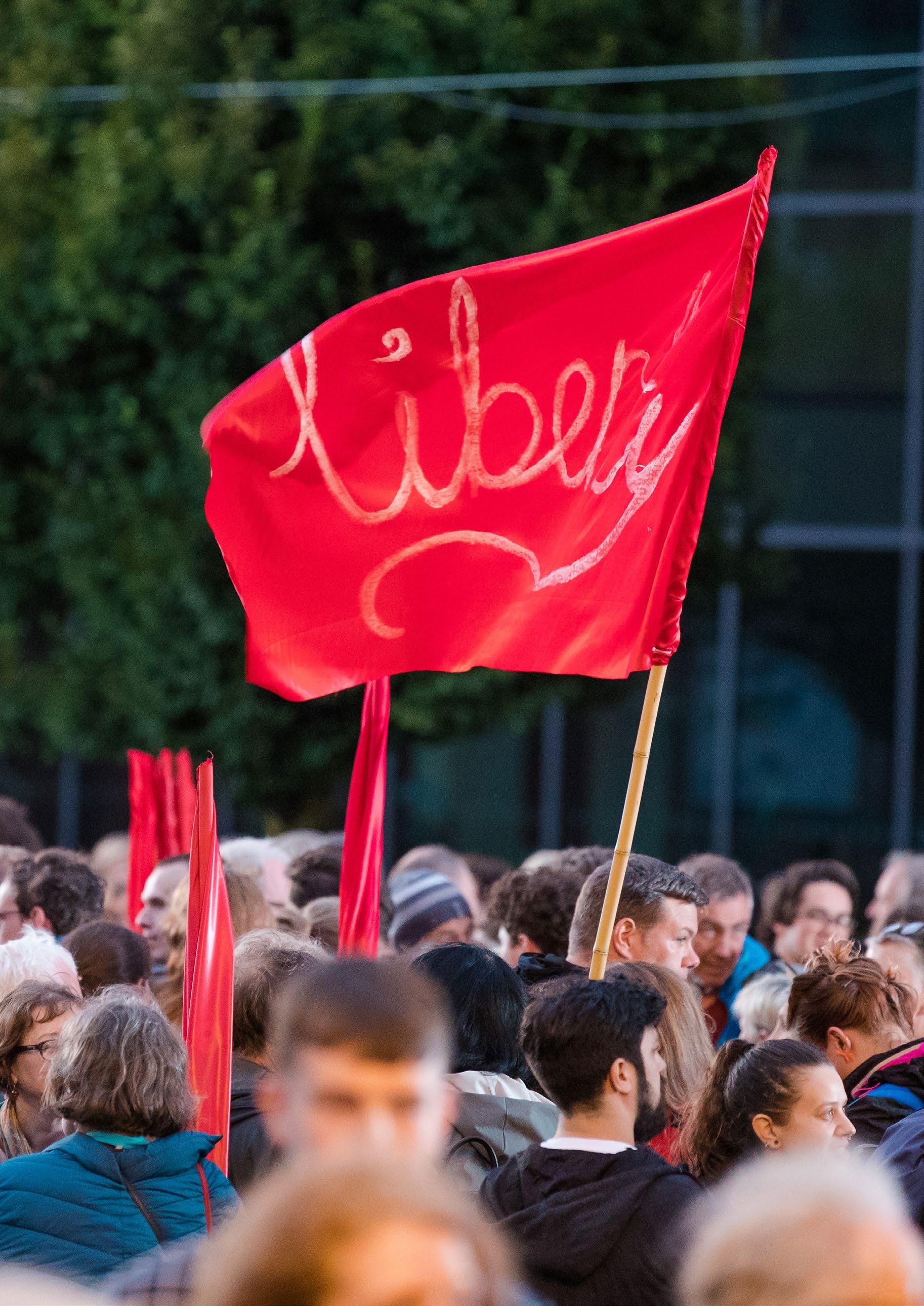
From The Crowd Performance, Danny Boyle. Reading of the Names of the dead, Peterloo 2019. Photo by Jonathan Keenan Photography.
5Resourcing
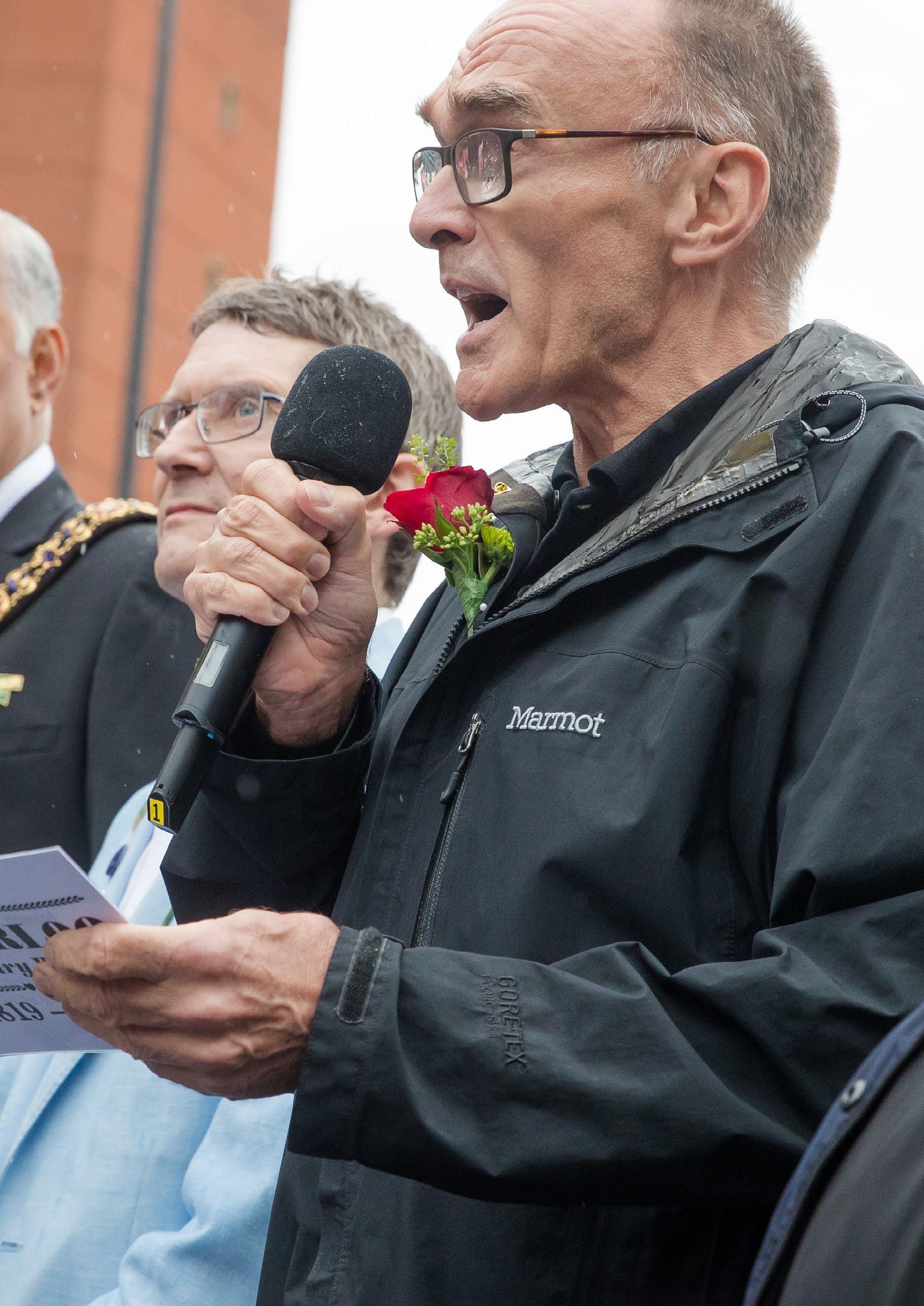
Manchester Histories will deliver our aims by managing our resources effectively, including:
• Sharing resources to deliver our aims
and create a collaboration culture,
e.g., sharing space with Archives+ at
Manchester Central Library. • Saving resources to reduce costs and improve the environment, e.g., delivering our
Environmental Action Plan supported by MAST. • Supporting our people to deliver our aims, e.g., developing the digital skills of staff/ volunteers supported by the Digital Heritage
Lab programme. • Growing our organisational resilience to adapt to challenges, e.g., training, mentoring and peer learning in Heritage
Compass Business Support Programme. • Securing resources to deliver our aims, e.g., ensuring funding/income by delivering our Funding Action Plan and Income
Generation Strategy.
Manchester Histories’ Action Plan (2021 – 2024) details the resources required for each work area, including people, funding, physical spaces, partnerships, knowledge, skills and equipment. The Action Plan also identifies if we have the resources identified or if they need to be secured. We will be creative and proactive in identifying and addressing gaps in resources as the Business Plan’s delivery progresses. We predict that the COVID-19 pandemic will make it increasingly challenging to secure resources for our core costs (see Challenges and Opportunities). This has the potential to place Manchester Histories’ long-term solvency at risk if not adequately addressed. We will remain creative, proactive and positive in identifying and securing the resources we need to survive and thrive. Our Business Plan is values-led, and we will always identify and secure resources from partners, suppliers and people who share our values in what they do and how they do it.
Manchester Histories' priority areas for resource investment are:
New income streams to ensure our
future stability.
New staff posts to embed the capacity we
require to deliver our aims.
Digital resources (equipment and skills) to
meet the challenges of blended delivery.
Investing in our people's wellbeing,
including delivering training, creating new roles and developing wellbeing resources.
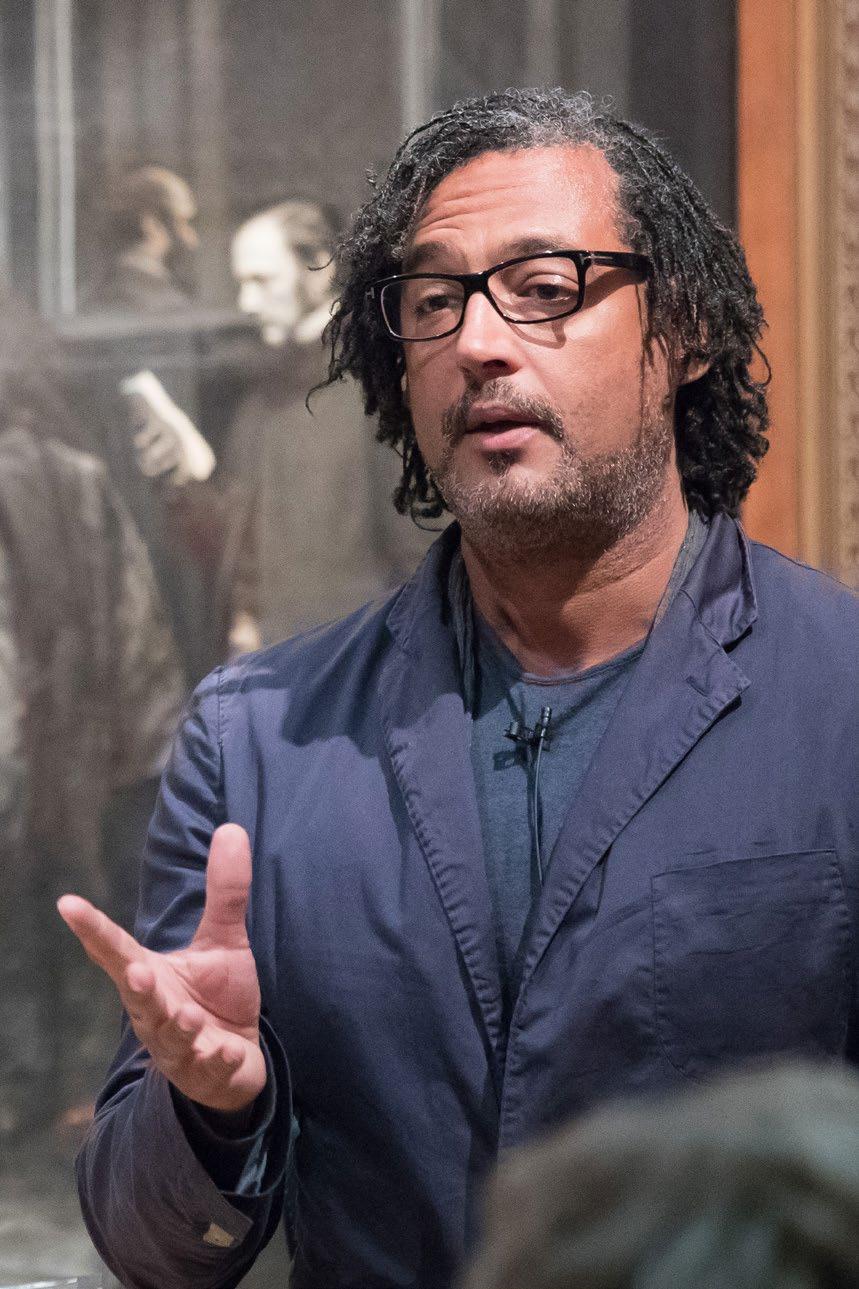
Protest Music, Royal Northern College of Music, Street Wise Opera. Photo by Jonathan Keenan Photography.
6Finance

Manchester Histories have effective and accountable methods for managing our finances to ensure good governance, including:
• Up-to-date Finance, Reserves, Anti-
Corruption and Bribery policies to ensure we operate in a safe, honest and transparent manner. • An ethical procurement policy to ensure we obtain economic and social value for money for all the services and products we purchase.
• Using QuickBooks to monitor and report on our income and expenditure.
Manchester Histories is a Registered Charity (1151944) and Limited Company (08283259). We employ an independent accountant, Slade & Cooper, to prepare our end of year accounts. We monitor all financial information and report on our financial position to our trustees at our quarterly board meetings.
Income is a mixture of public grants from our funders, ticket sales, donations, trusts and foundations. Over the next three years we will continue to explore ways to diversify our income by applying for a broader range of grants and developing an e-commerce strand. Expenditure is mainly spent on staff costs and delivering cultural activity. Over the next three years we aim to increase our expenditure to support extra staff costs, digital activity, marketing and communications.
The Financial Forecast and Assumptions (2021 – 2024 - Appendix One and Two) for the coming three years reflects the ambitious targets Manchester Histories has set in order to achieve its aims and objectives.
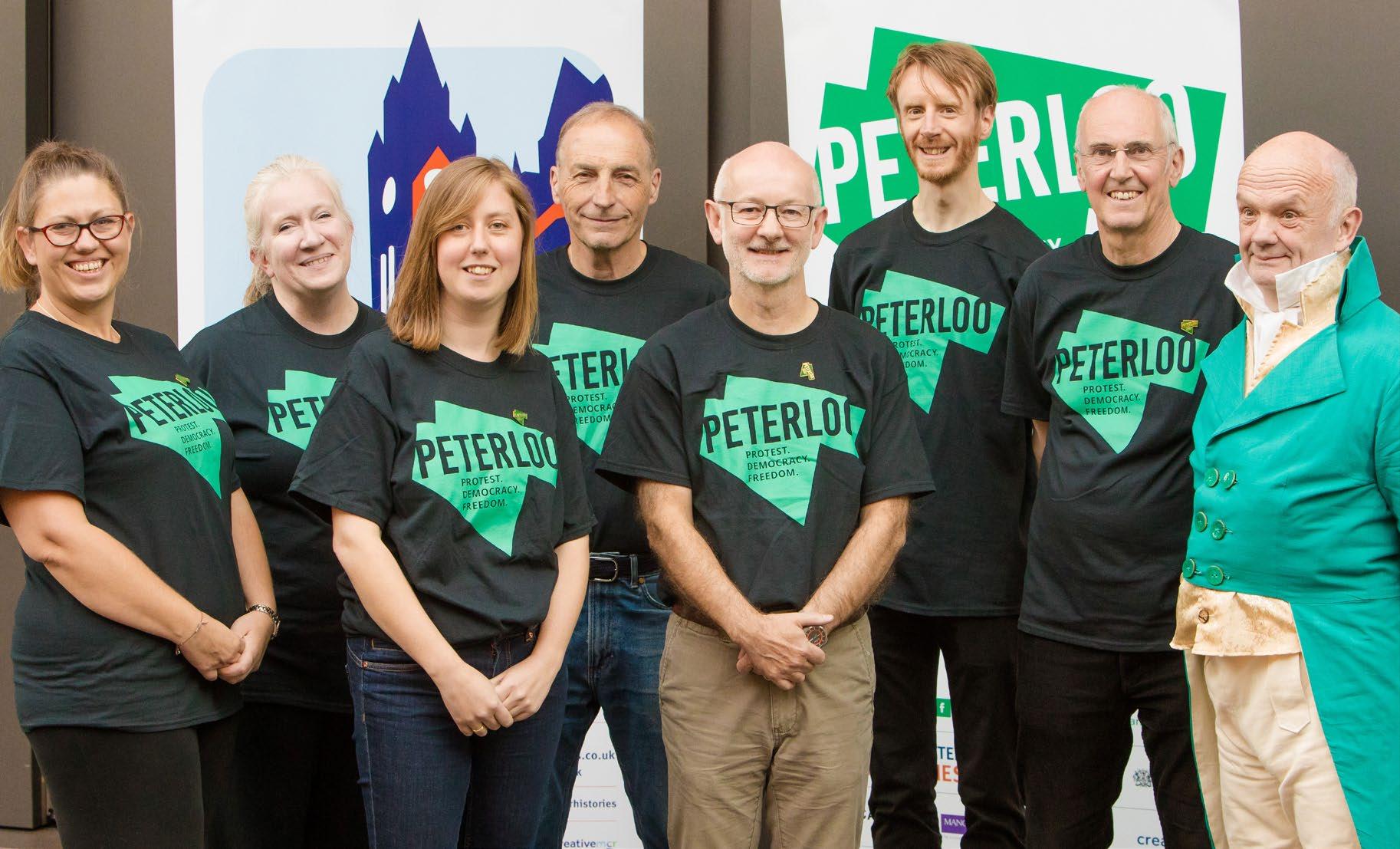
7Monitoring and Evaluation

Manchester Histories are always learning. We learn from the projects we deliver, the people we work with and the audiences we engage with. We use this knowledge to improve what we do and how we do it.
Manchester Histories uses an evaluation framework to measure the impact of our work. Our evaluation framework enables Manchester Histories to respond to feedback, improve the work we deliver and report back to our funders. The Institute of Cultural Practices at the University of Manchester first developed the framework. Manchester Histories has revised the framework several times to ensure its continued relevance to our programme of activity. The framework includes a tool kit that demonstrates the impact our projects have on creatives, communities and other stakeholders. Our toolkit also links to themes emerging from our work such as health and wellbeing, social isolation or poverty to support the identification of future funding partners. We will continue to use and develop the framework over the coming three years. Manchester Histories also works with partners to produce external evaluations of exceptional quality. For example, the Heritage Lottery Fund supported the external evaluation of our Peterloo 2019 programmes. This included external evaluators attending events, talking to participants and reviewing data. The evaluation culminated in a high-quality report to share our learning with partners and continue to develop our practice going forward. Manchester Histories values the reflection and accountability that external evaluation offers. We will continue to secure resources to participate in external evaluations of our projects whenever possible over the next three years.
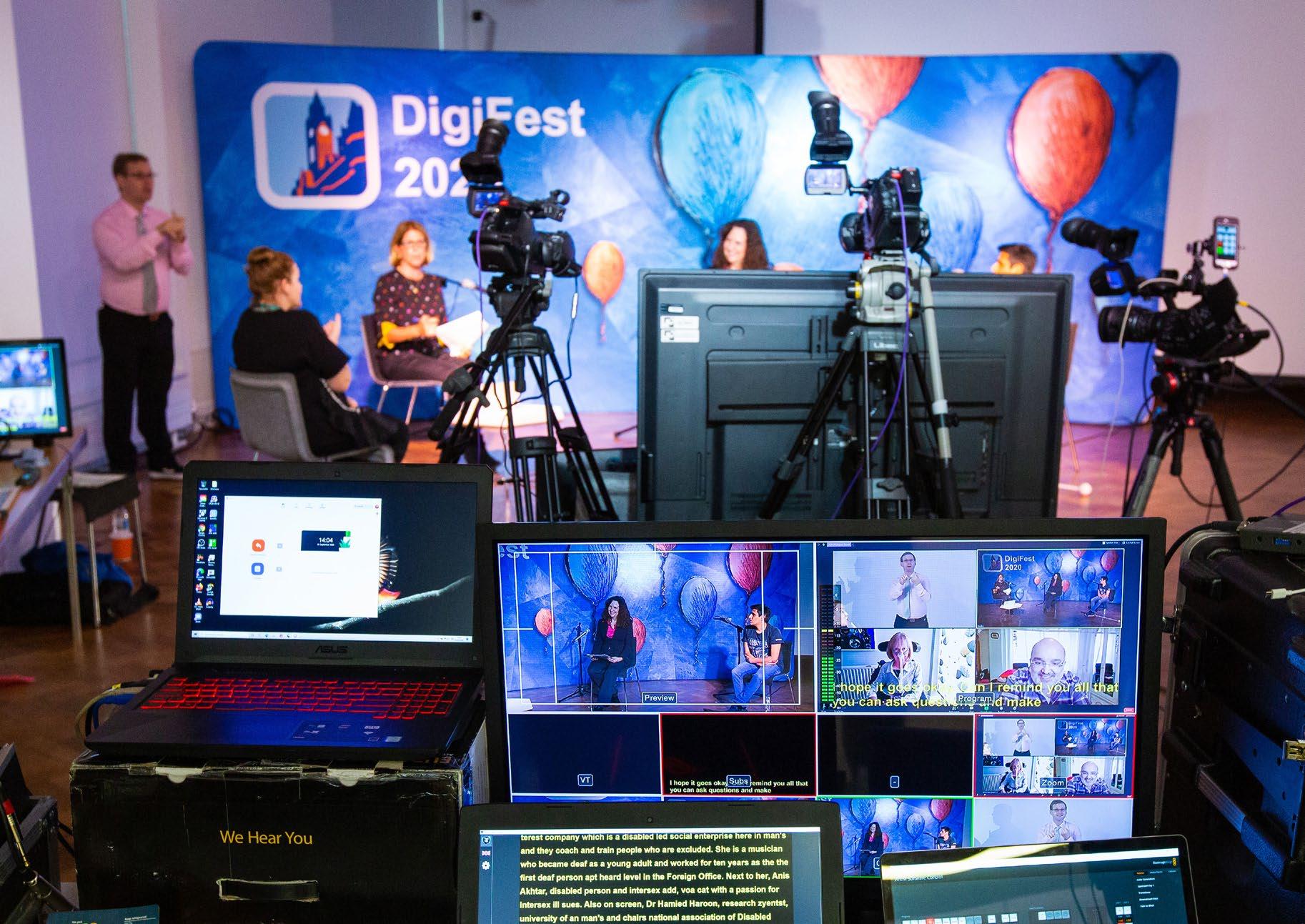
Manchester Hill Remembered, Manchester Cathedral. Photo by Rachel Bywater Photography.
8Appendices
